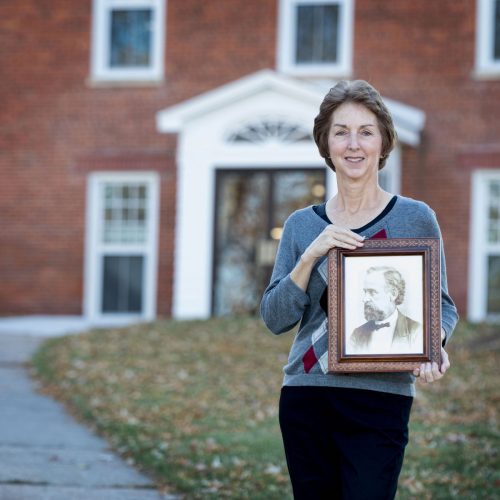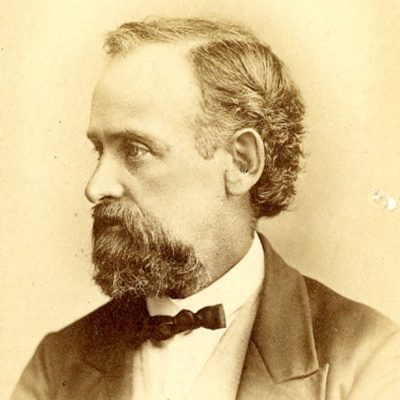Cornell connection in Dodge’s DNA

Nearly 40 years after graduating, Bonnie Dodge ’76 discovered a family tie to one of Cornell’s first professors and the man who turned down Cornell’s presidency in 1863.
David Hilton Wheeler was the first professor of classical languages when Cornell opened in 1853. He campaigned for Abraham Lincoln in Iowa and was rewarded in 1861 with an appointment as U.S. Consul at Genoa, Italy. Among other posts, he served as acting president of Northwestern University and president of Allegheny College.
Though Dodge was in Old Sem many times as a student, she had no idea that her great-great-granduncle was one of its original inhabitants.
“To think that he walked up that hill and saw the same vista over the countryside that we see today,” she remarked while visiting campus. And although she’s done a great deal of research on him, she still asks herself: “Why didn’t he accept the presidency? I’ve always wanted to know.”

Dodge took up genealogy when she retired in 2013 from teaching 8th grade language arts in Marion, Iowa, and private flute and piano lessons in Cedar Rapids. When Wheeler’s bio popped up, the words “Cornell College” caught her with a sudden punch.
Read a reflection on David Wheeler by Bonnie Dodge ’76
Over time she discovered he was loved by students and in demand as a great orator. And she found stories like one recounted by William Heywood in Cornell’s scholarly history, in which Wheeler once famously declared—from the top of an overturned whisky barrel whose contents had been emptied on the street by Mount Vernon residents angry at its proprietor—“The question is simply this: Whiskey and no college, or college and no whiskey.”
“Facts are great, names are great, but they’re not like stories. Stories give you a glimpse into their world,” Dodge says. “I can imagine his life. I’ve read his sermons and discovered how devout and well-loved he was, and I really feel like I know him.
“It just means a lot to me to know the founders left a legacy and were involved in something so important and challenging at the time—to start a college in the middle of almost nowhere.”



